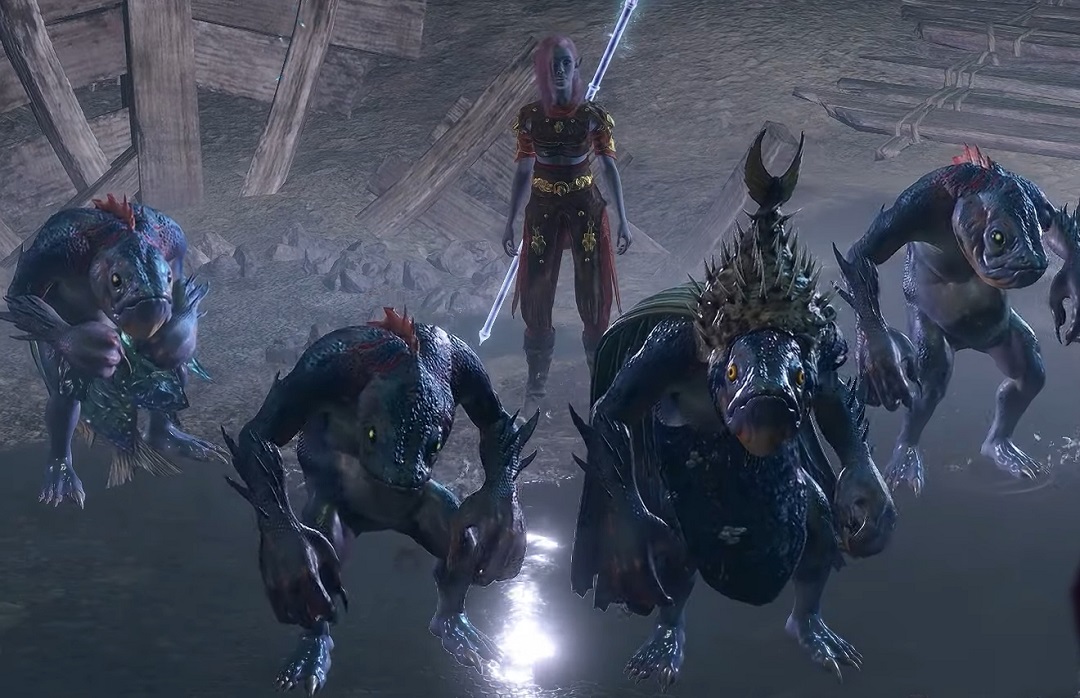Welcome back readers.
We are approaching the deadine to get your recommendations in for our end-of-year review, so if you haven’t already done so, make yourself heard!
Also, it’s my birthday tomorrow! If you want to give me a present and aren’t already a Patron, consider tossing a few bucks our way. With more support, we can do more stuff!
This Week in Videogame Blogging is a roundup highlighting the most important critical writing on games from the past seven days.
Screen Space Reflections
This week’s issue hits the ground running with a pair of articles that centre the entanglement of games within larger power structures and frameworks, often for the worse.
- A review of the Dubai Police COP28 mobile game (normal) | every frame per second
Foxbox never finds a human presence in a serious (?) game about a human problem. - War Games Are Inherently Political For Muslims and Arabs | Kotaku
Alyssa Mercante talks to Muslim & Arab developers and critics about the distorted ludic narratives of a caricatured Middle East that normalize real-world atrocities.
““For as long as I can remember, video games have used Middle-Eastern settings for first-person shooting…that has significantly impacted how the world sees that region and the people from there,” GameSpot managing editor Tamoor Hussain said via email. “[Games and other forms of media and entertainment] present the region as places to be blown up and as having populations that are all evil cave-dwelling terrorists, whether that’s Call of Duty soldiers mounting Spec Ops missions to kill dangerous militants or Tony Stark proudly standing in front of a backdrop that is immediately recognizable as the Middle East…When you see those same settings in real-world news reports for long enough, the line between truth and fiction can blur.””
Polar Oppocalypses
Our next pairing brings together critical insights on two very different post-apocalyptic games.
- Highway to Hell | In The Lobby
Cole Henry reflects on the sheer nihilism of the Mad Max videogame. - The End Is Only the Beginning in ‘Saltsea Chronicles’ | PopMatters
Luis Aguasvivas reviews a different take on what comes after.
“As the video game industry eats its own with its constant layoffs, studio shutdowns, and endless remakes/remasters (the recent announcement of a remastered version of The Last of Us Part II, a game originally released in 2019 comes to mind), Antonio Gramsci’s words ring out “the old is dying and the new cannot be born”. In this interregnum, small studios like Die Gute Fabrik show us a path forward. By focusing its narrative on building a world where society and humanism are the anchors, Saltsea Chronicles presents us with another world, another possibility for imagining our collective future.”
Party Favours
It’s been a little while since the roundup touched upon Baldur’s Gate III, so let’s check in with two selections which examine relationship-building and the patch history of the game itself.
- Personal Emergence | Unwinnable
Phoenix Simms chronicles her rivals-to-friends arc with Astarion. - Baldur’s Gate 3’s new epilogues wrestle fan service and narrative weight | Eurogamer.net
Ruth Cassidy contemplates the slippage between authorship and fandom as Larian patches BG3 in a crowd-pleasing direction.
“It’s not a bad impulse to want to soothe ill-will from fans, but when a game is patched with what feels like its own fix-it fan fiction, it makes me wonder about the closing distance between fans and a creation: why is the response to a disliked, ambiguous, or challenging ending a requirement that it be fixed, instead of processing those feelings of dislike in critique, reflection, transformative fan-made works, or myriad other ways that aren’t directly addressed to developers?”
Past and Present
Let’s turn our gaze now to the industry, looking both at it’s often-lionized, sometimes-misremembered past as well as its bleakly precarious present.
- Mario Origins: How A Popeye Game Became Donkey Kong | A Critical Hit!
Kate Willaert untangles Nintendo’s early arcade history as they sort out licenses and come into their own as not just game designers but character designers. - Bungie Devs Say Atmosphere Is ‘Soul-Crushing’ Amid Layoffs, Cuts, and Fear of Total Sony Takeover | IGN
Rebekah Valentine speaks with Bungie employees about the deteriorating conditions and atmosphere within the studio.
“”I’m angry. I’m upset. This isn’t what I came here to do,” one person said. “It feels like many higher ups aren’t listening to the data and are like, ‘We just need to win our fans back, they still like us.’ No. They don’t…We got rid of some of our most knowledgeable beloved folks who have been here for 20+ years. Everyday I walk in afraid that I or my friends are next. No one is safe.””
Critical Chaser
I admittedly tend to skim the “best-of” lists that come out this time of year–that’s pretty normal, right?–but this one demands to be read cover-to-cover.
- 50 of the RPGs | DEEP-HELL
The Most List of the year, which I’ll credit to the DEEP-HELL community as a whole.
“It’s Definitive”
Subscribe
Critical Distance is community-supported. Our readers support us from as little as one dollar a month. Would you consider joining them?
Contribute
Have you read, seen, heard or otherwise experienced something new that made you think about games differently? Send it in!


